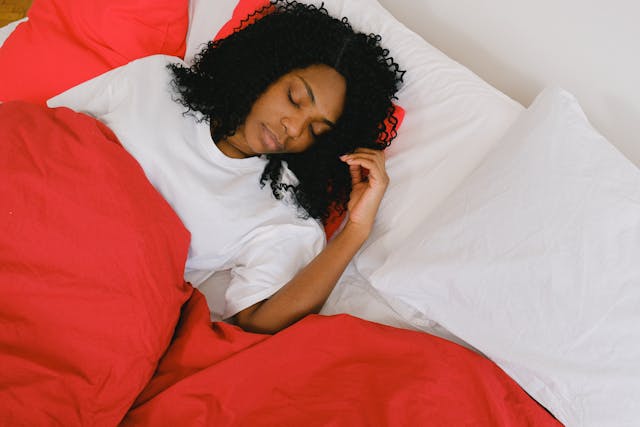
Hours Of Sleep
Adult bedwetting, also known as nocturnal enuresis, is a condition that affects a significant number of people worldwide. Although more commonly associated with children, bedwetting in adults can be embarrassing and distressing, often causing individuals to suffer in silence.
However, it is important to know that bedwetting is not necessarily a sign of laziness or personal failure. In most cases, there are underlying medical, psychological, or lifestyle reasons behind it.
In this article, we’ll explore the causes of adult bedwetting, discuss treatment options, and offer practical strategies to help manage and cope with the condition.
Common Causes of Adult Bedwetting
Bedwetting in adults can occur for various reasons, and identifying the root cause is key to finding an effective treatment plan. Here are some of the most common causes:
Urinary Tract Infections (UTIs)
A urinary tract infection can lead to increased urgency to urinate, which might cause bedwetting during sleep. UTIs irritate the bladder and can cause involuntary urination.
Diabetes
High blood sugar levels in people with diabetes can lead to frequent urination. This is because the body tries to flush out excess sugar through urine. Bedwetting might happen when the urge to urinate becomes overwhelming, especially at night.
Bladder Problems
Overactive bladder syndrome or a small bladder capacity can cause bedwetting. An overactive bladder contracts uncontrollably, leading to the sudden need to urinate. If this happens during sleep, bedwetting can occur.
Hormonal Imbalance
In some cases, a deficiency in the hormone vasopressin, which reduces urine production at night, may cause bedwetting. When the body doesn’t produce enough vasopressin, the kidneys continue to produce large amounts of urine, increasing the likelihood of nighttime accidents.
Sleep Disorders
Conditions like sleep apnea can increase the risk of bedwetting. Sleep apnea disrupts normal sleep cycles and may prevent individuals from waking up when their bladder is full.
Medications
Certain medications, particularly diuretics (which increase urine production) and some sleeping pills, can contribute to bedwetting. If you’re taking medications, it’s important to discuss potential side effects with your healthcare provider.
Psychological Factors
Stress, anxiety, and trauma are known triggers for bedwetting. Individuals experiencing emotional difficulties may unknowingly develop nocturnal enuresis as a response to high stress levels.
Effective Treatments for Adult Bedwetting
While adult bedwetting can feel overwhelming, there are treatments available that can help manage and often resolve the issue. It’s important to seek professional advice to determine the best approach for your situation. Here are some treatment options:
Lifestyle Changes
Simple adjustments in lifestyle can significantly reduce bedwetting. Some strategies include:
- Limiting Fluid Intake Before Bed: Reducing the amount of fluids consumed in the evening can help minimize the likelihood of bedwetting.
- Avoiding Diuretics: Alcohol and caffeine increase urine production, so it’s advisable to reduce or avoid them, especially in the evening.
- Using the Bathroom Before Sleep: Make sure to fully empty your bladder before going to bed.
Bladder Training
Bladder training is a common method used to improve bladder control. It involves practicing delaying urination during the day, which helps increase bladder capacity and improve control. This can reduce the likelihood of nighttime accidents.
Medications
Depending on the cause, your doctor may prescribe medications to help manage bedwetting. Common medications include:
- Anticholinergics: These reduce bladder contractions, helping to prevent an overactive bladder.
- Desmopressin: A synthetic hormone that reduces urine production at night.
- Antidepressants: In cases where psychological factors such as stress or anxiety are contributing to bedwetting, antidepressants may be prescribed.
Addressing Underlying Conditions
If bedwetting is caused by an underlying health condition, such as diabetes or a UTI, treating that condition can help alleviate the bedwetting problem. Managing blood sugar levels or taking antibiotics for an infection can lead to improvements in nighttime urinary control.
Use of Protective Products
For individuals dealing with persistent bedwetting, using protective products such as waterproof mattress covers, absorbent underwear, and bed pads can help manage the condition discreetly. These products offer peace of mind and protect against embarrassment or discomfort during the night.
Coping Strategies for Adult Bedwetting
Living with adult bedwetting can be emotionally challenging, but it is important to approach the condition with patience and understanding. Here are some coping strategies:
Open Communication
Bedwetting can cause feelings of embarrassment and shame, but it is vital to have open and honest conversations with loved ones or healthcare providers. Addressing the issue with a supportive network can alleviate some of the emotional burdens.
Seek Support Groups
There are online and in-person support groups for adults who struggle with bedwetting. Sharing experiences and learning from others who are dealing with similar challenges can provide comfort and encouragement.
Stay Positive
Bedwetting is a manageable condition, and with proper treatment, many people experience significant improvements. Focus on the steps you can take to manage the condition rather than feeling overwhelmed by it.
Create a Routine
Establishing a regular bathroom routine during the day and before bed can help train your body to urinate at predictable times, reducing the risk of bedwetting. Consistency is key in managing symptoms.
In Conclusion
Adult bedwetting, while often stigmatized, is a common issue that can be addressed with the right combination of lifestyle changes, treatments, and coping strategies.
If you’re experiencing bedwetting, it’s important to seek medical advice to determine the underlying cause and work toward a solution. With patience and perseverance, adult bedwetting can be managed, allowing you to regain confidence and improve your quality of life.
Read Also: Tips for Vaginal Hygiene





